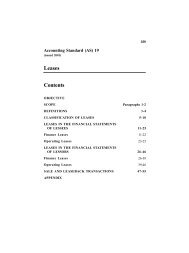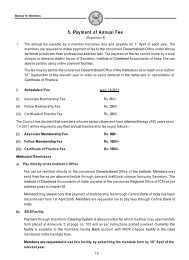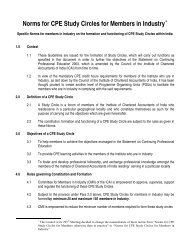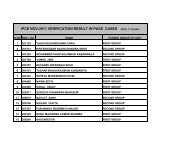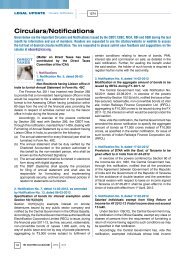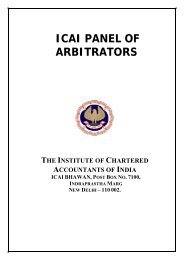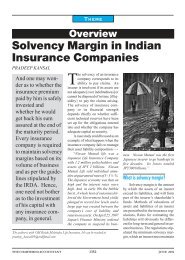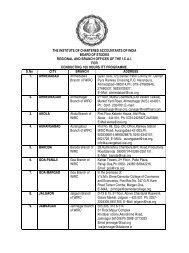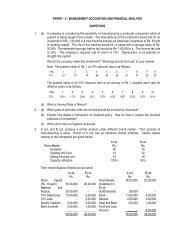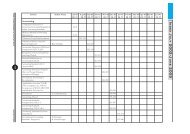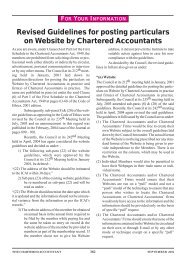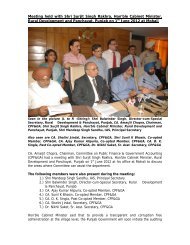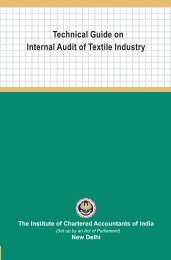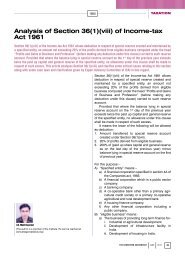The Chartered Accountant
The Chartered Accountant
The Chartered Accountant
You also want an ePaper? Increase the reach of your titles
YUMPU automatically turns print PDFs into web optimized ePapers that Google loves.
is contemplated by the said clause. Paragraph<br />
9 of AS 22 merely provides for a liability<br />
which arises on account of timing difference<br />
as explained hereinabove. As stated above, it<br />
is known on the balance-sheet date. One has<br />
to therefore consider the matching principle<br />
and fair valuation principles as important<br />
concepts in accrual accounting. Further, as<br />
stated above, recognition and measurement<br />
is not covered by the provisions of the Companies<br />
Act, therefore, one has to read the<br />
provisions of the Companies Act along with<br />
the impugned rule which adopts AS 22 as<br />
recommended by the Institute” .” (Para 126<br />
on page 290 of 297 ITR)<br />
“In our view, paragraph 9 of AS 22 merely<br />
represents a gap filling exercise, therefore,<br />
there is no merit in the contention advanced<br />
on behalf of the appellants that AS 22 is inconsistent<br />
with the provisions of the Companies<br />
Act including Schedule VI. It proceeds<br />
on the principle that every transaction<br />
ACCOUNTING<br />
has a tax effect. <strong>The</strong> words "true and fair"<br />
view in section 211(1) connotes the widest<br />
law making powers and, in that context, we<br />
hold that the impugned rule adopting AS 22<br />
is intra vires as the said rule is incidental and/<br />
or supplementary to the specific powers given<br />
to the Central Government to make rules,<br />
particularly when such power is given to fill<br />
in details. <strong>The</strong> word "supplementary" means<br />
something added to what is there in the Act,<br />
to fill in details for which the Act itself does<br />
not provide. It is something in the sense that<br />
is required to implement what is there in<br />
the Act. [See Daymond v. South West Water<br />
Authority [1976] 1 All ER 39 (HL). <strong>The</strong>re<br />
is no merit in the contention advanced on<br />
behalf of the appellants that the impugned<br />
rule seeks to modify the essential features of<br />
the Companies Act. <strong>The</strong> rules made on matters<br />
permitted by the Act to supplement the<br />
Act cannot be held to be in violation of the<br />
Act. [See Britnell v. Secretary of State (for<br />
Social Security) [1991] 2 All ER 726 (HL)].<br />
THE CHARTERED ACCOUNTANT 971 DECEMBER 2008



